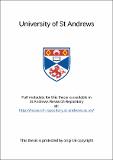Structure of the major capsid protein (hexon) of adenovirus types 40 and 41 and the use of hexon-derived oligonucleotide probes for diagnosis
Abstract
The genes encoding the major capsid proteins (hexons) of human adenovirus types 40 and 41 were isolated and sequenced. Comparison of the predicted amino acid sequences with the hexons of adenovirus types 2 and 5 revealed regions of high homology, interspersed with regions of extreme variability across the four serotypes. Fitting of the Ad40 and 41 hexons to the known three-dimensional structure of the Ad2 protein, reveal that the majority of changes are confined to the loop domains which form the surface of the virion, while the P1 and P2 β-barrels which comprise the base are well conserved. A major exception to this is the absence in both Ad 40 and 41 of 32 consecutive amino acids present in adenovirus type 2. In Ad2 this sequencee extends from the top of the l1 loop down into the D-strand of the P1 domain, and includes a highly acidic domain which may be responsible for pH-induced conformation changes at the surface of the virion. Molecular-modelling suggests that, despite the absence of these amino acids, residues in both the Ad40 and 41 hexons can be accommodated into the P1 domain to form an alternative D-strand, hence maintaining the integrity of the base. However, it is predicted that the Ad 40 and 41 D-strands would be shorter than their type 2 counterpart. Thus it is likely that the hexons of the enteric adenoviruses closely resemble the Ad2 protein in the basal domains, but differ significantly in the architecture of their surface towers. Unique sequences identified in the Ad40 and 41 hexon genes were used to design type-specific radioactive oligonucleotide probes which were tested for their usefulness as tools for the diagnosis of enteric adenovirus infection. These oligonucleotides were successful in demonstrating the presence of enteric adenovirus DNA in faecal and infected cell extracts using a dot-blot hybridisation assay.
Type
Thesis, MSc Master of Science
Collections
Items in the St Andrews Research Repository are protected by copyright, with all rights reserved, unless otherwise indicated.

